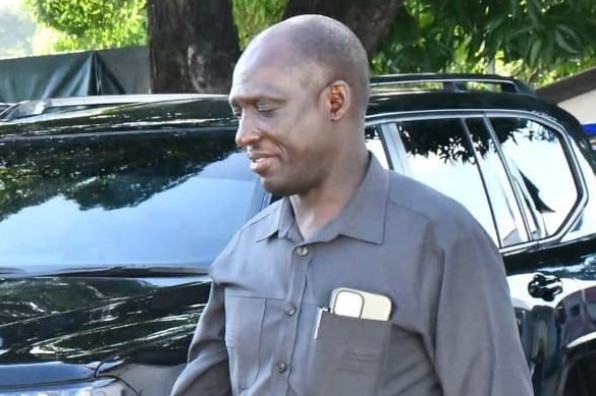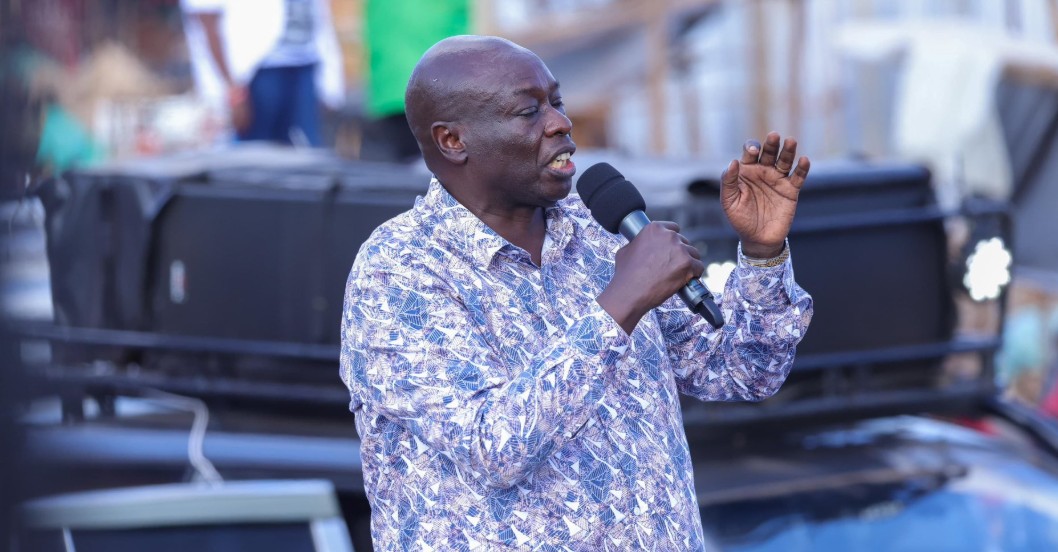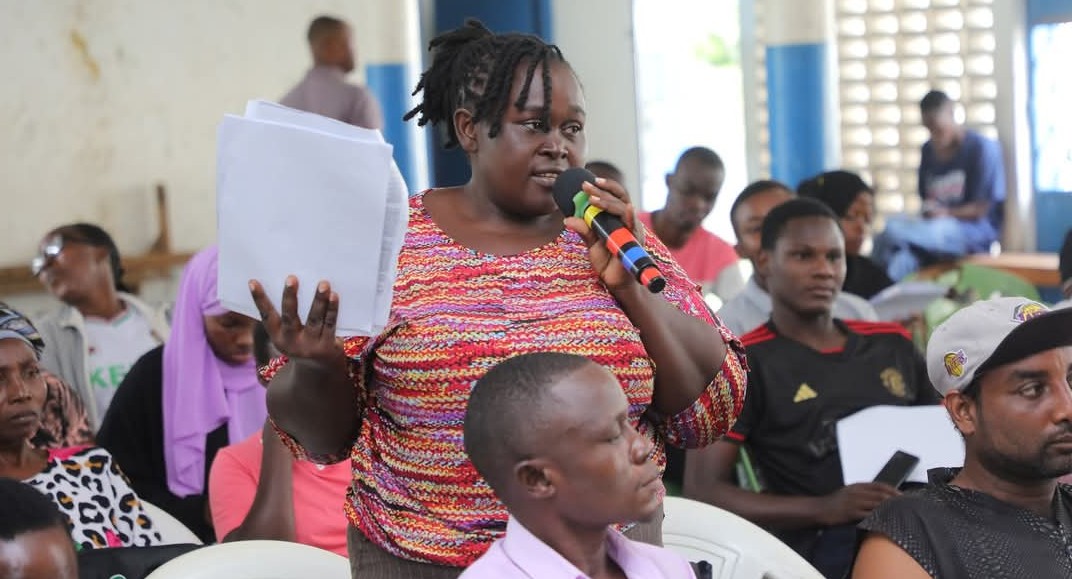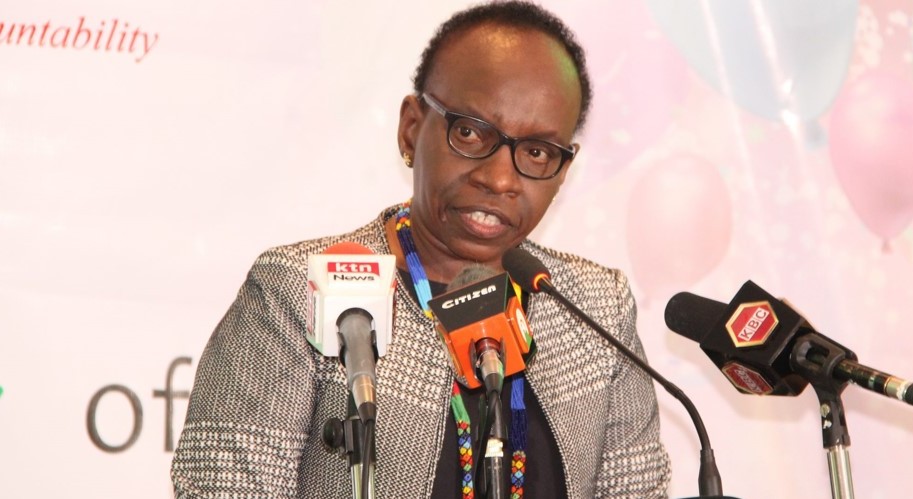Nuria Bookstore celebrates literary icon Ngugi wa Thiong'o
During this period, the bookstore that is located along Moi Avenue is inviting literary enthusiasts to sample and discuss Ngugi’s works in his honour.
The life and contribution of the late literary icon Ngugi wa Thiong’o is being celebrated at Nuria Bookstore by a colourful display of his works and nostalgic memories he bequeathed to literary enthusiasts.
Nuria Bookstore, founded by Abdullahi Bulle, specialises in stocking books authored by local publishers, therefore promoting and encouraging local literature and writing. Abdullahi told The Eastleigh Voice that they have displayed Ngugi’s works following his outstanding contribution to the development of African literature.
More To Read
- Five things you should know about Ngũgĩ wa Thiong'o, one of Africa’s greatest writers of all time
- Ngũgĩ wa Thiong'o: A legacy of literary greatness and unfulfilled Nobel Prize dream
- Kenya and world mourn literary icon Ngũgĩ wa Thiong’o, champion of African languages
- Literary icon and revolutionary Ngũgĩ wa Thiong’o dies at 87 in Atlanta
- Butere Girls’ troubled performance at drama festival echoes Ngugi wa Thiong’o’s banned play
- US policies restricting academic freedom, author Mukoma Wa Ngugi says as he sues Trump
“Ngugi was an icon and the father of African literature, worth celebrating. We are lucky as a bookstore to have almost all his literary works,” said Abdullahi.
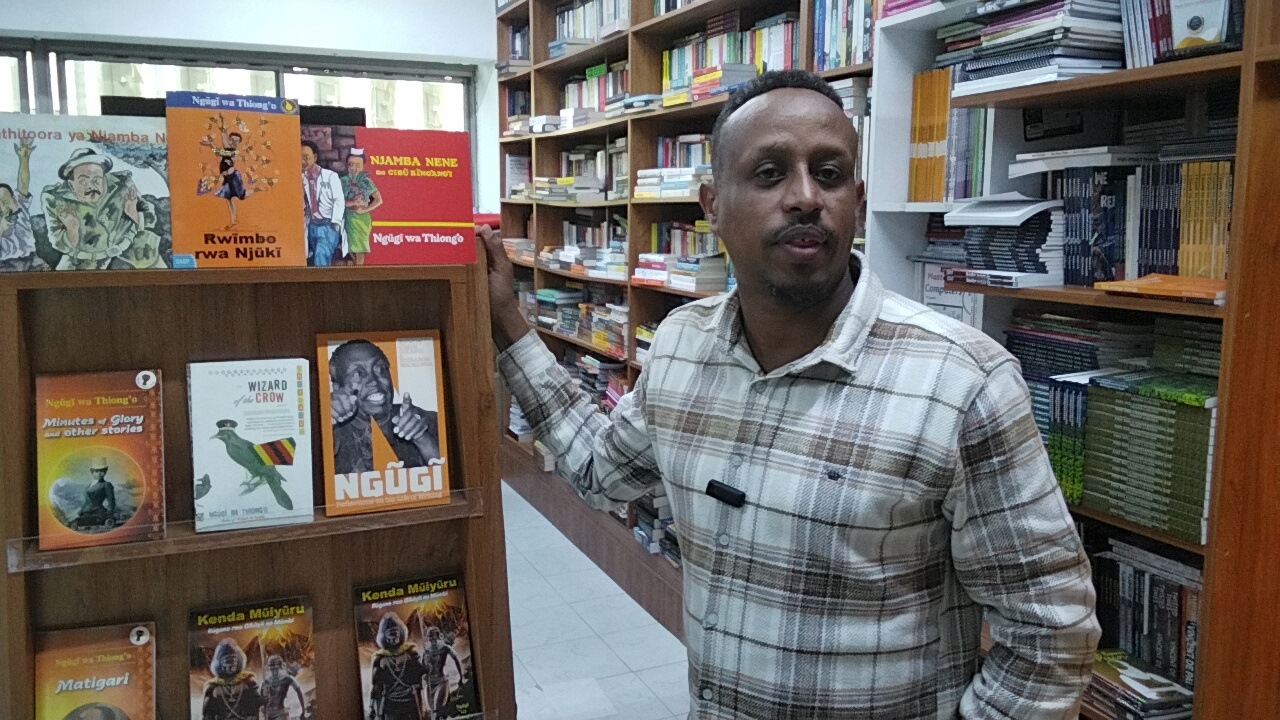 Founder of Nuria Bookstore Abdullahi Bulle speaks to The Eastleigh Voice on why the bookstore is honouring the late author Ngugi wa Thiong'o. (Photo: Barack Oduor)
Founder of Nuria Bookstore Abdullahi Bulle speaks to The Eastleigh Voice on why the bookstore is honouring the late author Ngugi wa Thiong'o. (Photo: Barack Oduor)
During this period, the bookstore that is located along Moi Avenue is inviting literary enthusiasts to sample and discuss Ngugi’s works in his honour. What thrills Abdullahi about Ngugi was his courage to write his books in his native Gikuyu language before they were translated into English and other languages.
“I believe Ngugi played a significant role in promoting local languages. The courage to write in the local language during Kenya’s colonial and post-colonial era was rare, yet he did it and became successful,” explains Abdullahi.
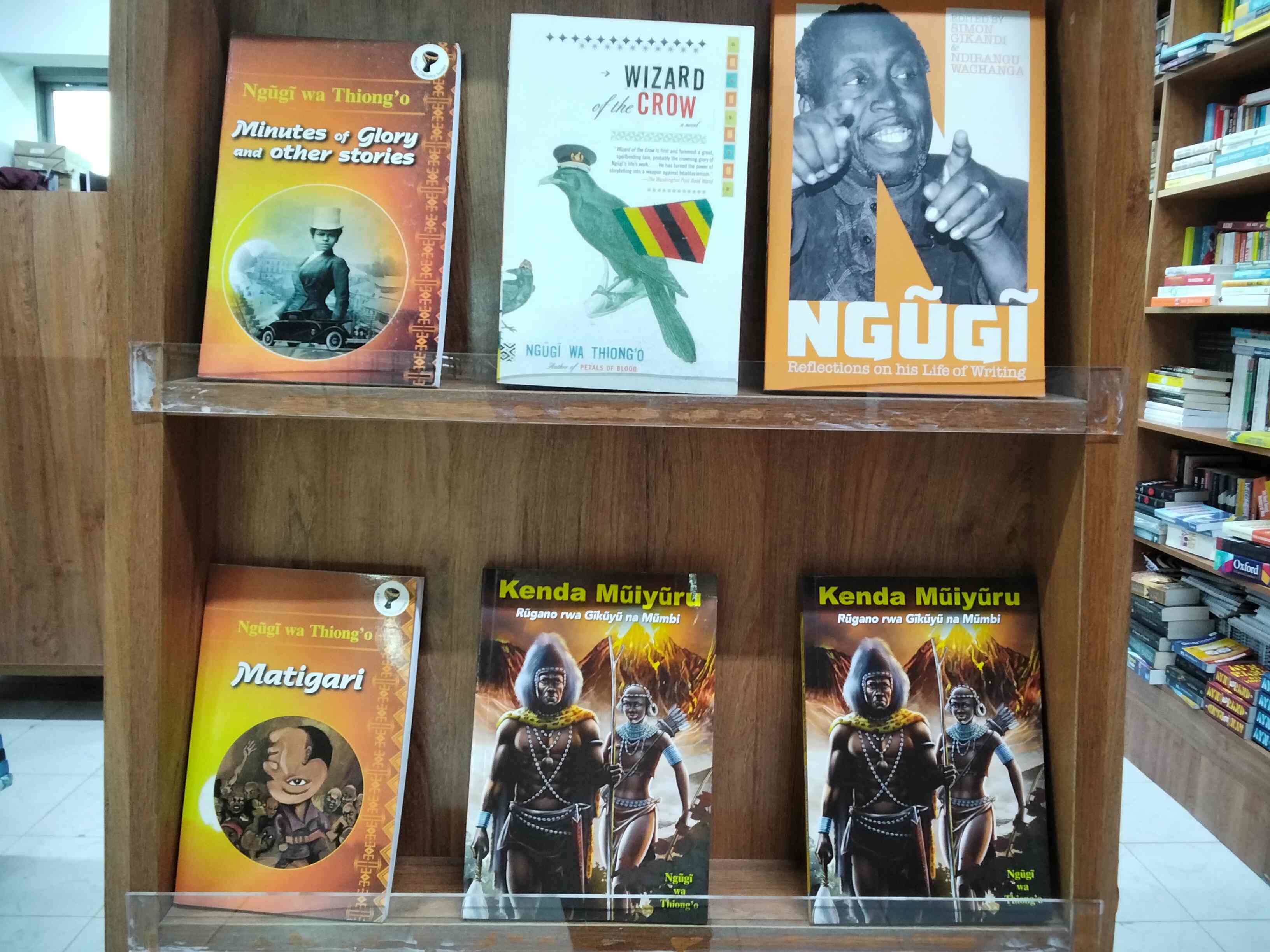 Ngugi wa Thiong'o's books displayed at Nuria Bookstore to honour his contribution to African literature. (Photo: Barack Oduor)
Ngugi wa Thiong'o's books displayed at Nuria Bookstore to honour his contribution to African literature. (Photo: Barack Oduor)
As a seasoned bookseller and now publisher, Abdullahi encourages upcoming writers not to neglect local or vernacular languages while writing because it is one of the best ways to conserve culture, traditions and way of life in African societies.
Ngugi died at the age of 87. His death was first announced by his daughter. “It is with a heavy heart that we announce the passing of our dad, Ngugi wa Thiong’o, this Wednesday morning,” wrote his daughter Wanjiku wa Ngũgĩ on Facebook. “He lived a full life, fought a good fight.”
Ngugi greatly admired local languages. Steve Paulson, the Executive Producer of Wisconsin Public Radio's nationally syndicated radio programme "To the Best of Our Knowledge”, in a past interview with Ngugi, wanted to know why the writer preferred his native Kikuyu language in his works.
Ngugi replied that the question he had just asked him is similar to the one he had asked himself in prison. “I saw how once we have colonised another, the first thing they do is always impose their language as the language of power. So they demonise the language of the colonised, and they glorify the language of the coloniser,” Ngugi argued.
Ngũgĩ explored the troubled legacy of colonialism through essays, plays and novels, including “Weep Not, Child” (1964), “Devil on the Cross” (1980) and “Wizard of the Crow” (2006). Considered a giant of the modern African pantheon, he had been a favourite for the Nobel Prize in literature for years.
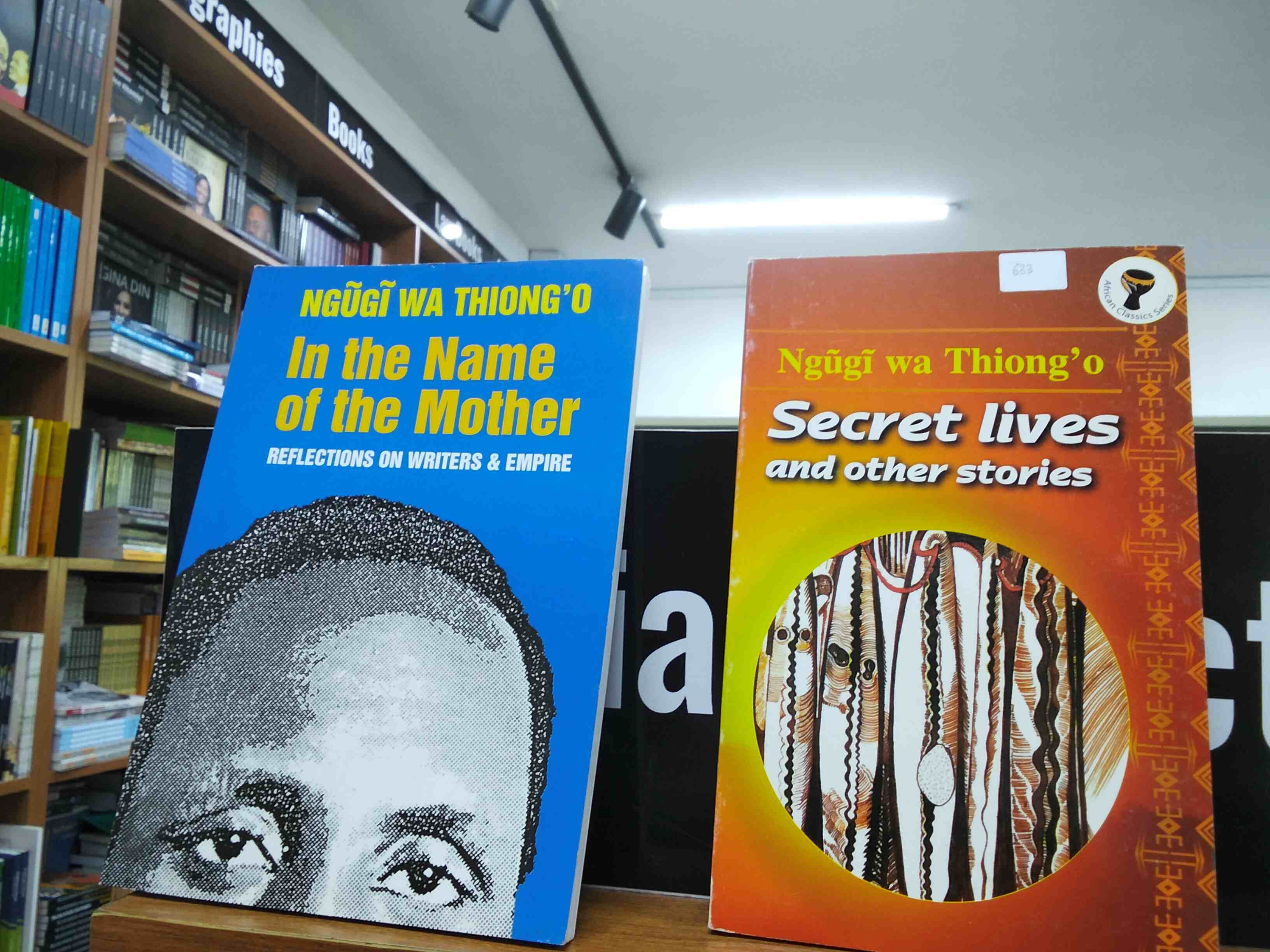 Ngugi wa Thiong'o's books displayed at Nuria Bookstore to honour his contribution to African literature. (Photo: Barack Oduor)
Ngugi wa Thiong'o's books displayed at Nuria Bookstore to honour his contribution to African literature. (Photo: Barack Oduor)
Born in 1938, while Kenya was under British colonial rule, Ngũgĩ was one of 28 children born to a father with four wives. He lived through the Mau Mau uprising as a teenager, during which the authorities imprisoned, abused and tortured tens or even hundreds of thousands of people. During the conflict, Ngũgĩ’s father was forced off his land, and two of his brothers were killed.
This struggle formed the backdrop to the novel that made his name: “Weep Not, Child.” Published in 1964, just a year after Kenya gained independence, it tells the story of the education of Njoroge, the first of his family to go to school, and how his life is thrown into turmoil by the events that surround him.
In 1977, he published his fourth novel, Petals of Blood, and a play, “The Trial of Dedan Kimathi,” which dealt with the troubled legacy of the Mau Mau uprising, but it was his co-authoring of a play written in Gikuyu, “I Will Marry When I Want”, which led to his arrest and imprisonment in Kamiti Maximum-Security Prison.
Although he was released in 1978, exile followed in 1982, when the author learned of a plot to kill him upon his return from a trip to Britain to promote his novel “Caitani Mutharabaini,” translated as “Devil on the Cross.” He later moved from the UK to the US, where he worked as a professor of English and comparative literature at the University of California, Irvine, and headed its International Centre for Writing and Translation.
Tony Adam Mochama, a poet, writer, author and journalist, told The Eastleigh Voice that Ngugi won hearts with his use of local language in writing at a time when it was thought that adapting the coloniser’s language was irresistible.
“Ngugi was not only a rebel against the existing political system but also a rebel in the use of language. He used his vernacular language to communicate to his audience, prompting colonisers to develop an interest in his literature,” said Mochama.
Top Stories Today




